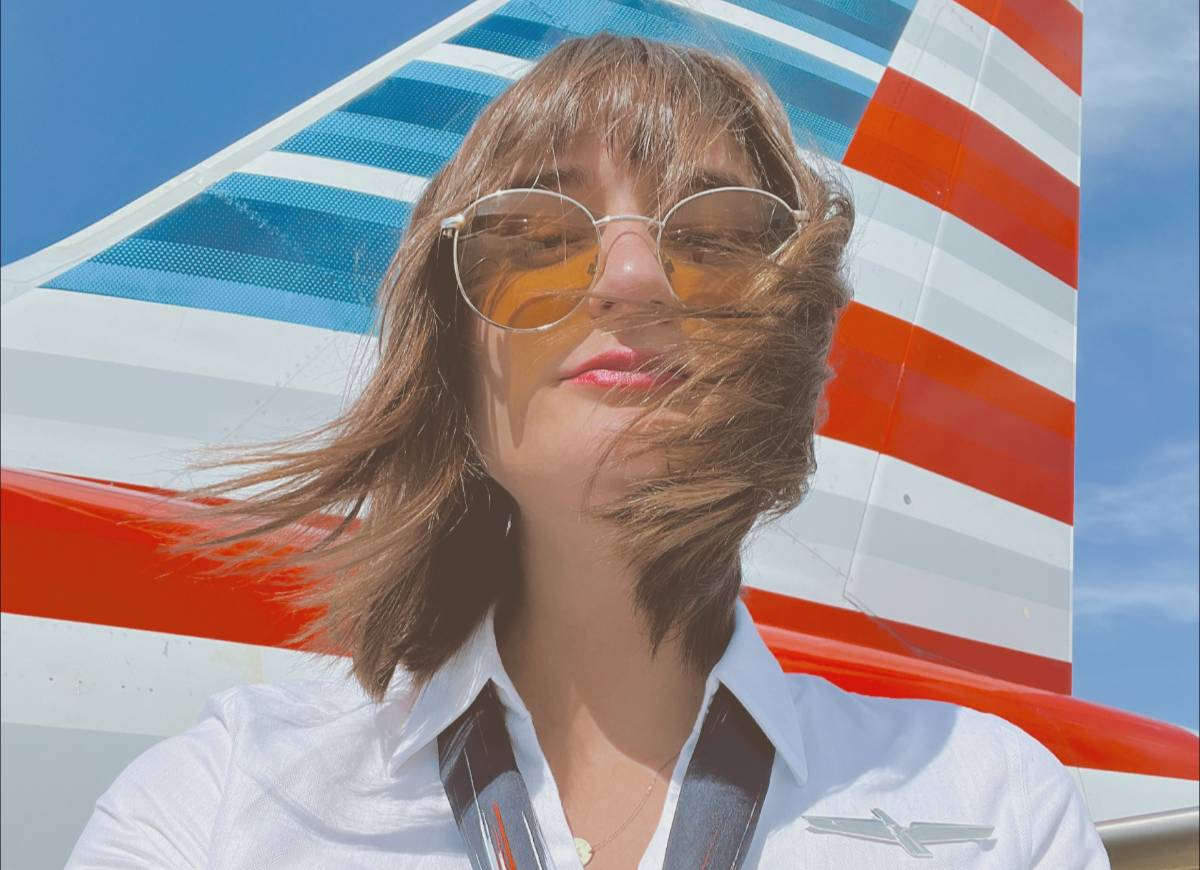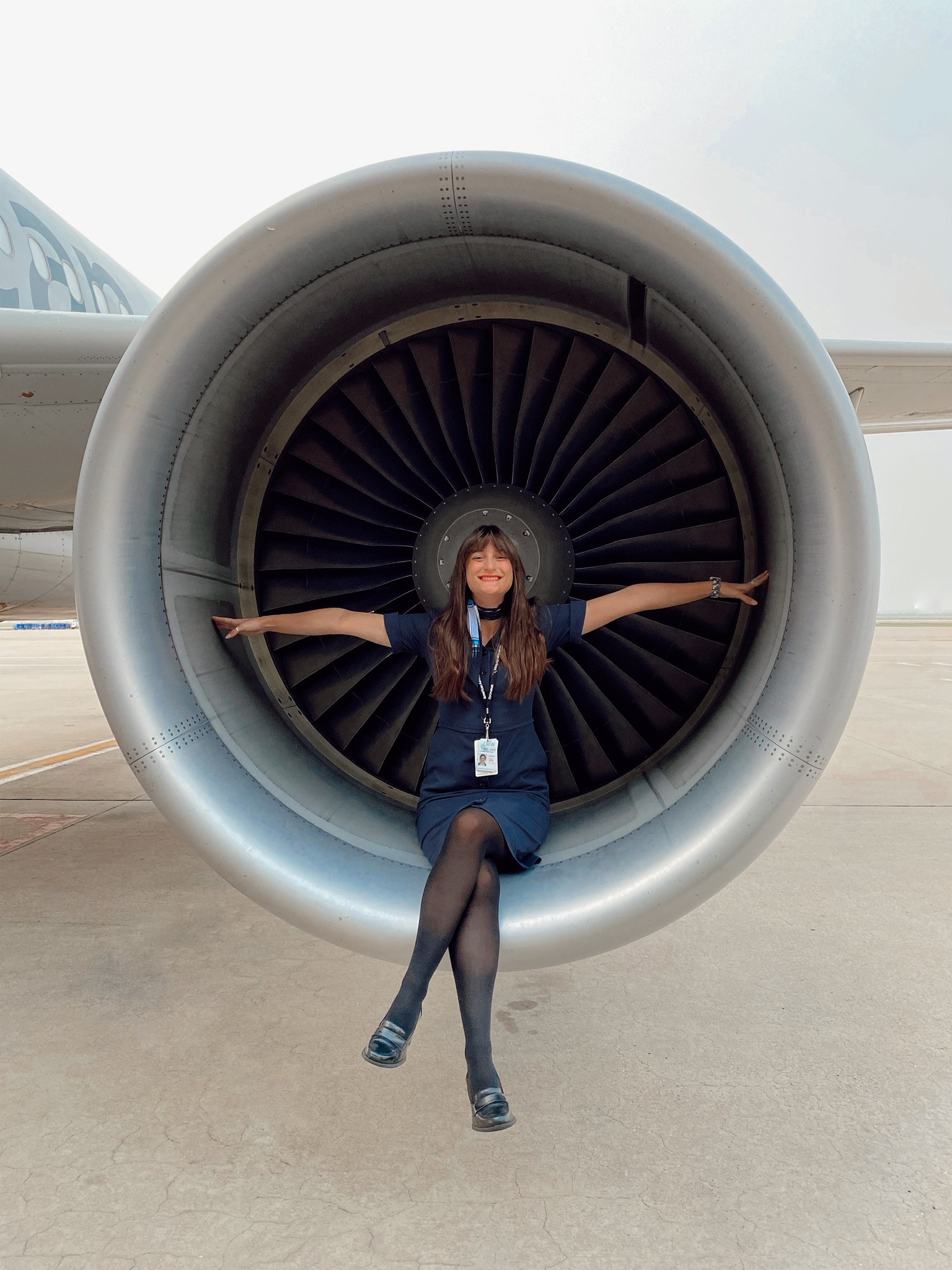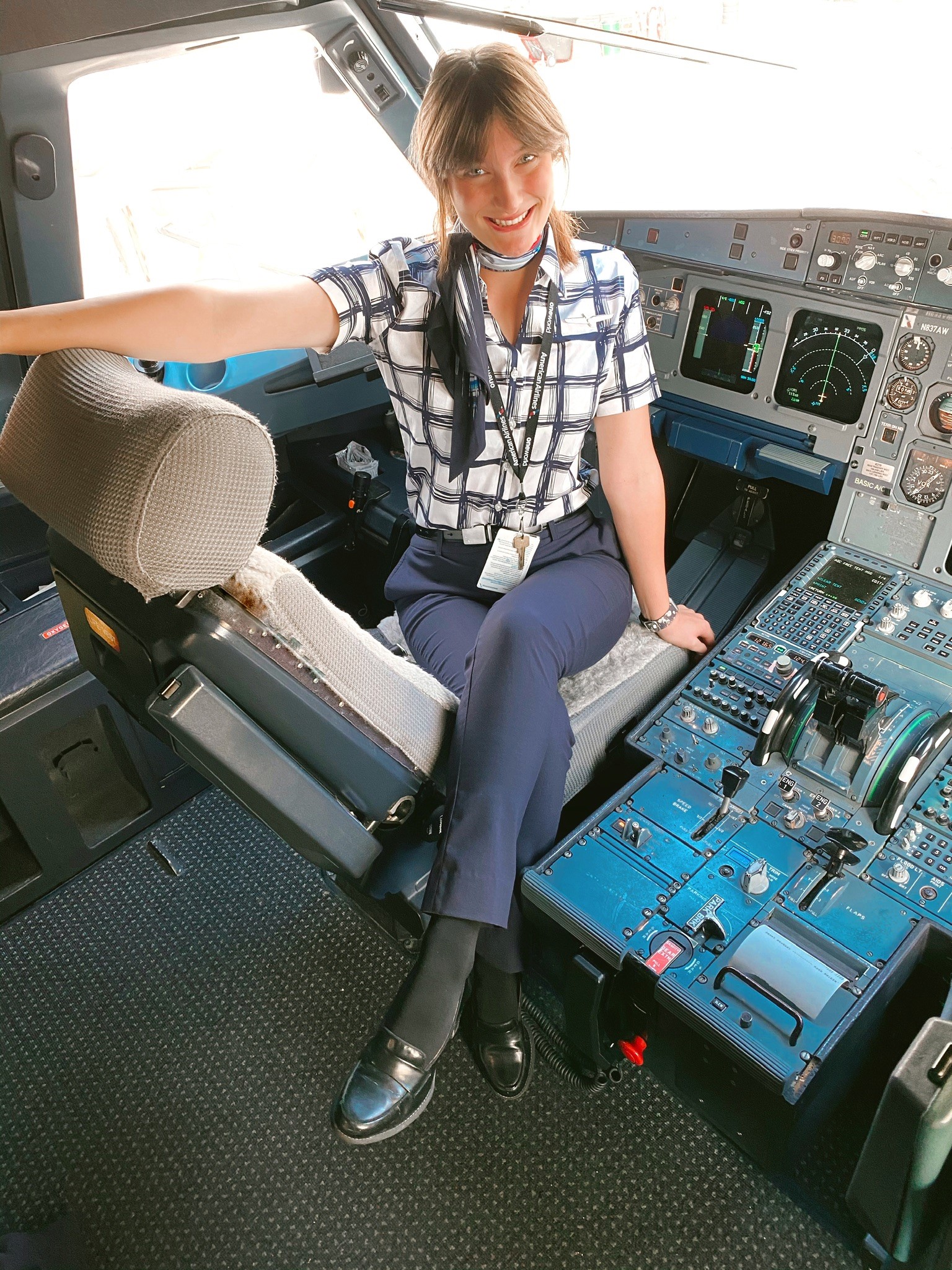

The School of Aviation Sciences at Utah Valley University is the ideal place to embark on a career in aviation. While pilot training may get the most attention, there are an enormous range of careers in the aviation industry. In addition to the Professional Pilot degree, UVU offers Bachelor Degrees in Aviation Management and Aerospace Technology Management, both of which are designed to be a "launch" platform for graduates who have interest in virtually any aviation career pathway.
Carly Hassard, UVU class of 2016, earned her degree in Aviation Management and then landed a career as an American Airlines flight attendant that she has enjoyed now for 8 years. We caught up with Carly, who offered some details and insight into the profession, which many are curious about. What is a flight attendant career really like? Well, let's find out!
When did you first become interested in aviation? At what point did you decide to pursue a flight attendant career?
Growing up, my parents would tell stories of their travels, my mom worked in reservations for many years at FrontierAirlines, and my dad ski raced around the world. I loved the idea of travel and seeing the world, and when I went to the pilot presentation at a career day my sophomore year of high school, I knew I’d found an industry that had everything I was looking to experience. I enrolled in all the aviation classes my high school technical institute offered through junior and senior year, and discovered a love for flying. I started working in sales at Salt Lake City International Airport, then moved into Customer Service at TAC Air Provo, I absolutely loved being around the planes, but wanted to travel more, so after graduation from UVU I applied to be a Flight Attendant for American Airlines.
What made you select UVU for your degree? How has your degree & education at UVU helped you in your career pursuit?
UVU has one of the best aviation programs in the state, specifically the Aviation Management program which allowed me to get a degree that would apply to a wide range of jobs I was interested in within the industry.
Describe the career progression of a flight attendant at American Airlines.
 This is a career where seniority is core to your experience. Low, new hire flight
attendant pay can be cost prohibitive, especially in certain bases. Reserve on-call
at this seniority is much more frequent. Even at this level you can choose to pick
up trips on days off, and fly more if you’d like. Schedule control and pay increases
over time. As your seniority increases, you gain the ability to create lines by bidding
for trips, and have more choice to trade or drop your schedule. As challenging as
it is to be a new hire, eventually you get to a point where you can make a really
comfortable life flying the trips you want, on the days you want, as much or little
as you want! Having that kind of schedule control is a huge perk of this job. You
find wide variation among flight attendant schedules and income that’s all constructed
by each individual's preference and needs.
This is a career where seniority is core to your experience. Low, new hire flight
attendant pay can be cost prohibitive, especially in certain bases. Reserve on-call
at this seniority is much more frequent. Even at this level you can choose to pick
up trips on days off, and fly more if you’d like. Schedule control and pay increases
over time. As your seniority increases, you gain the ability to create lines by bidding
for trips, and have more choice to trade or drop your schedule. As challenging as
it is to be a new hire, eventually you get to a point where you can make a really
comfortable life flying the trips you want, on the days you want, as much or little
as you want! Having that kind of schedule control is a huge perk of this job. You
find wide variation among flight attendant schedules and income that’s all constructed
by each individual's preference and needs.
What do you like most about the flight attendant career?
The job itself has its ups and downs, but I am so happy with the life and experiences I have because of this career. I have met some of my best friends here, and have had the chance to see beautiful places all around the world. I’ve lived in Chicago, and Dallas, and can stay connected with family and friends all over the country. I am so grateful for the freedom I have to explore the world on and off the job. Seniority is so important as a flight attendant, and the longer I’ve been here the better it gets. I make my own schedules and hours, and can choose to layover in familiar cities I love or new places I want to explore. There’s so many days it doesn’t even feel like work because I’m looking forward to my trips.
I feel so lucky to have met so many unique, wonderful people through my work. When I graduated college I had everything I needed and more from my education, but I could still be generally quiet and shy. This career has put me in a position where I had to build confidence and social skills in a way few other jobs would demand. I’ve learned to connect with people from all walks of life, and get to experience news culture and social diversity every day. I’ve seen the Eiffel Tower sparkle in Paris, set my watch off Big Ben in London, watched the whales jump on the Tasman Sea, lunched with the Kangaroos in Sydney, rode bikes through the tulips of Amsterdam, drank out of coconuts on the beaches of Mexico, danced in the rain in Portugal, wished on the Trevi Fountain in Rome, and so much more! I have a new appreciation for all this world has to offer, and I always know the next adventure is right around the corner. In so many professions you may travel to get a break from work, but my job IS to travel!
 What has been the most challenging aspect of your career so far?
What has been the most challenging aspect of your career so far?
This career has been so wonderful, and I feel so lucky to have had the experiences I have had, however it’s not without challenges. Living life out of a suitcase with new crews and passengers every day can be isolating and lonely, especially at first. We serve reserve, which means we have no idea when or where we will be flying. It can be tough to regulate your sleep, make plans, and stay connected with family and friends when your schedule is so fluid. COVID19 had a huge impact on our day to day lives, and work place safety. It caused a furlough for several months. That was a time of great uncertainty for the future of the industry.
What were the biggest factors influencing you to select American Airlines?
I knew I wanted to have the opportunity to work international trips, which narrowed down my focus to the big three international carriers, being American, Delta, and United. American was the first that had their applications open, and I feel that it was fate I ended up where I did. Many choose airlines that may have bases in a certain city, or work rules that are favorable. Each airline has such a different culture and personality, this choice can have a huge impact on shaping a career.
Describe the culture at American. What is your flying schedule like?
Our team in Inflight is all about collaboration and supporting each other. We all know what it’s like to be away from our homes and loved ones while we’re at work, and we strive to be that support system for each other while we’re away on trips. My schedule changes month to month, but at 8 year seniority I can typically hold any days off I need, and I choose to serve reserve three months out of the year. By serving the full three months, I can avoid being pulled onto reserve unexpectedly. When not on reserve I hold a mix of 2 and 3 day trips. Three day trips at my seniority have longer, better layovers, and two day trips allow you to be home more often, so I enjoy a mix through the month. I typically hold domestic trips, including Mexico and Canada. I typically get the wide body international trips to Europe, Asia, or South America a few times a year on reserve.
How has your career affected your family life?
At first this life style was really tough on my family life, I’d be far away on birthdays, and holidays, and it was really challenging. Now, I rarely miss an important event. I can control my schedule more, and it allows me to stay connected. My parents and siblings have been able to use my flight benefits to travel as well. Growing up, my mom felt, through Frontier, she was able to give back to her parents by granting them some incredible travel experiences. I always admired that and I hope to do the same for my family.
What advice would you give someone interested in a flight attendant career?
Being a flight attendant can be incredible, but it’s not for everyone. You have to be willing to put some time in as a junior flight attendant, when your schedule and life is hardly your own. The first few years are incredibly challenging mentally, and financially. There are high highs and low lows. This job is a lifestyle in many ways and you have to learn to regulate your physical, mental, and social needs alongside the demands of a flight schedule. Though you may not get a choice of base initially, choosing an airline with base options in a city where you’d like to live or have a support system in can be a factor in career longevity. In training they tell us “be a palm tree,” meaning be flexible, be able to bend in the wind. The more you can roll with the highs and lows, the more you’ll thrive and be able to get the most out of this uniquely incredible career!










